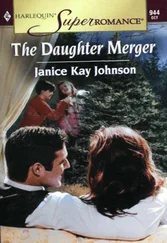Her children went off to school this morning, she had a meeting with a party planner, and then she came here, to her secret place.
It is here that she allows herself to think. She is in the bathtub. She is naked. She is alone.
She is a woman who has two children. Not three.
She sits in the warm water, embryonic, floating, and wonders how to begin living with that fact as a base.
WOULD THINGS have been different had she not gone on the boat trip? Never met Margaret? She thinks about that possibility until the unfairness makes her breathless.
Junk trips were a common weekend excursion. On Saturday or Sunday mornings, boaters congregated on far-flung piers or in the cool marble lobby of the Aberdeen Marina Club or the more basic Boat Club, with swimsuits and towels packed in L.L. Bean canvas totes; PARKnSHOP bags filled with paper napkins and plates, plastic forks and cups; coolers with marinated chicken wings, cold potato and pasta salads, chopped-up fruit, bottles of wine. In this case, the boat trip had been organized for a friend’s fortieth birthday, Barbara Chang Miller, a Korean woman married to an American man, with two young children. Barbara had been like a big sister to Mercy. They had met at a Columbia alumni event, and she had taken Mercy under her wing and introduced her to some people, which she had appreciated, since the twenty-something scene was a bit of a goldfish bowl and it was nice to escape it every once in a while to hang out with real adults. Mercy brought a bottle of sauvignon blanc and a linen scarf bought in Stanley Market as a birthday present for Barbara.
It was September but still hot, as it tended to be until mid-October. The boaters greeted one another, finding their respective groups, moving slowly in the damp morning air, hair wet, clutching lattes, children scampering around exploring the corners, as they waited for everyone to arrive. When critical mass was achieved, a phone call was made to the boat to dispatch the tender, or to hire a sampan, and a smaller boat came to take the group to the bigger boat, usually a lacquered wooden junk or a large white yacht rented out for the day.
There were around twenty people — five couples, most with children, mostly American, plus Mercy. She and Barbara were the only Asian people in the group, something she always noticed in Hong Kong, because it was pretty hard to accomplish. Mercy was introduced to Margaret and Clarke Reade, who had three kids who were dashing around the pier. Mercy had never met Margaret but had read about her in the local paper when she had consulted on some hotel garden in Mong Kok. Clarke, Margaret’s husband, looked vaguely familiar, but she couldn’t place him. She had never met the other families. Mercy was the lone single girl.
They got on the sampan and were taken out to the boat. The boat boy hoisted them on, and there was the usual flurry of activity: the women dumping ice in the coolers, putting away the food, setting up the drinks; the men popping open beer cans and retiring to the top of the boat; children scrambling everywhere, babies wailing, mothers calling distractedly for all to be careful; the chatter and the warm smell of coconut sun lotion.
The driver started the engine, and as the boat gathered speed they settled into their roles: the children, sitting at the front, wind ruffling their hair, noses up in the air like dogs, as they sipped from soda cans; mothers gossiping in the back; the men laughing and relaxing on top.
Mercy found herself sitting next to Margaret, who on first glance seemed perfect. She was beautiful, in that polished, golden brunette way, with the perfectly peaked eyebrows and tawny skin and long, coltish limbs. She had on white knee-length shorts and a raspberry linen tunic embroidered in darker raspberry curlicues, under which she sported a red triangle bikini. From what Mercy could see, she had a kind, handsome husband, three beautiful kids, whom she patted distractedly and lovingly, and an interesting job. Women like her made Mercy itchy. How did she end up with all that? She was older than Mercy, of course, but still, she couldn’t imagine accumulating all those things in eight years, or in eighty.
Margaret was one of those women who Mercy imagined didn’t recognize a mean person, since no one would ever be mean to her, or snotty, or distracted. She gave off the aura of someone who was someone, someone you should know, or whom it would behoove you to know. She had never known condescension in her life.
She was kind too. She asked Mercy about her work, was lovely about it. When asked about hers, Margaret tried to demur but was pressed and then told of some of the fabulous gardens she had done all over the United States.
She talked to Mercy for a while about hiking and beaches and outdoor sports, hesitated, and then asked if she’d ever want to take her kids out. “Of course, I have a helper, but what I miss is the young people who will take my children out and really talk to them and can get them moving and thinking. Kids in Hong Kong just want to sit inside in the air conditioning and play video games.” She told Mercy a story about a neighbor whose child was so spoiled he sat playing video games while a helper spooned food into his mouth. The child was eight.
This is what parents did. They told you stories about children and were outraged or delighted by some odd detail and were perplexed if you were not appropriately outraged or delighted as well. They lived so entirely in that sphere, that sphere of people with kids, that they forgot that people could have no kids and have no idea what they were talking about. But Mercy didn’t mind Margaret. She was gracious and kind and wanted to include Mercy in her life. So she said yes. She would come over and do stuff with Margaret’s children. She wondered how much she would be paid but didn’t ask. She was not good at that sort of thing.
Another mother fretted about being on a boat. “It’s like being surrounded by a giant swimming pool,” she said. “Your child could go overboard, and if you didn’t notice right away…,” she said, gesturing at the wake. She sipped urgently at her white wine. Mercy wondered why she would drink at ten in the morning if she was worried about vigilantly guarding her children’s safety.
“The Shang in Cebu is the best!” a woman said, talking about her recent vacation. “The beaches in the Philippines are so nice.” Living in Hong Kong, the exotic became affordable and everyday. Mercy herself had gone on group trips to Boracay, to Hanoi, to Bangkok, on package tours that cost about US$300 for air and hotel. Even Philena had joined in a few, slumming it in her good-natured way as they caroused in the cheap bars and beaches of Southeast Asia.
The pleasant journey took about an hour, and they anchored near the beach, the boat boy scrambling around the front, hauling the anchor off the deck. It was around eleven, and it was starting to get crowded in the water, some six boats already there. The motor turned off, the boat rocked gently, and the heat gathered in the sudden silence. Everyone turned slippery and loose in the sudden warmth. Children began to jump from the roof.
Mercy joined them. She threw off her tank top and shorts on the roof of the boat, her one-piece swimsuit underneath. She had learned to wear modest clothing around older, married people. She stepped over the low rail, gripped the white surface of the roof with her toes, felt the sun warm her shoulders. Then she leapt. The water enveloped her, harsh and cold, as she plunged. She went in deep, her body a sharp line, then struggled up, frightened. People were always dying on these trips, boozy sunny days when people drank to forget the week. You would read about them in the local paper on Monday: not missed until the boat trip home, or someone hitting his head on part of the boat as he dived, or a propeller accident, or a simple drowning.
Читать дальше












